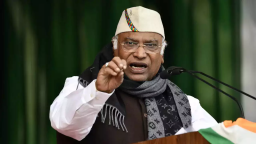Latest News
The Shanghai Cooperation Organisation: Chairmanship Opportunities for India

The Shanghai Cooperation Organisation (SCO) is a Eurasian political, economic, and security organization. It is the world’s largest regional organisation in terms of geographic scope and population, covering approximately 60% of the area of Eurasia, 40% of the World population, and more than 30% of global GDP. The SCO is the successor to the Shanghai Five, formed in 1996 between the China, Russia, Kazakhstan, Kyrgyzstan and Tajikistan. On 15 June 2001, the leaders of these nations and Uzbekistan met in Shanghai to announce a new organization with deeper political and economic cooperation; the SCO Charter was signed on 7 July 2002 and entered into force on 19 September 2003. Its membership has since expanded to eight states, with India and Pakistan joining on 9 June 2017. Several countries are engaged as observers (Afghanistan, Belarus, Iran and Mongolia) or dialogue partners (Sri Lanka, Nepal, Turkey Armenia, Azerbaijan and Cambodia). With Iran signing a membership agreement to become a permanent member (Apr 2023) and Turkey the first NATO member announcing its bid for permanent membership, the SCO is inching closer to be viewed as an antiWestern alliance. The SCO has been termed as the “Alliance of the East” and has been viewed as a Chinesedominated organization. However, considering the current membership, including Russia, India and other central Asian countries, especially in the prevailing global socioeconomic environment, the SCO has evolved into a formidable alliance, which the world is beginning to take a serious note of. Both Russia and China have initiated their respective ambitious projects in the region; the Eurasian Economic Union (EEU) and the Collective Security Treaty Organisation (CSTO) by Russia and China has launched its mega project Silk Road Economic Belt (SREB), often referred to as the Belt and Road Initiative (BRI). The rotating presidency of the SCO to India that commenced in Sep 2022 is an opportunity as well as a challenge for India to carve out a niche for itself in a Region that is of vital importance to it.
THE CURRENT SCENARIO
The US withdrawal from Afghanistan and re emergence of Taliban brings instability and possible turmoil in the region. The region faces problems of security issues, fight against terrorism, ethnic separatism, religious extremism and economic and infrastructural development. Absence of any Western country or its allies as a SCO member makes it look like anti West and SCO has commenced broadening its base. India joining the Quadcomprising India, US, Japan and Australia and I2U2 with US, Israel and UAE irks China and seen as a challenge to its growing global influence. Russia, the CARs and Pakistan have all joined China’s controversial global infrastructure programme BRI spanning over 100 countries minus India is a major point of concern. Broadening of base by including Bahrain, Maldives, Kuwait, UAE and Myanmar as the new dialogue partners, and process for Egypt, Saudi Arabia and Qatar are already in progress. China aims to align with Russia to counter US and that’s why avoids any direct reference to Ukraine war. China intends to use the SCO platform to emerge as its strongest leader. Russia aims to show to the West that it is not isolated and still holds international sway. Though there were no takers of its misadventures vis-à-vis Ukraine. Modi’s position on Ukraine war has not really gone well with Putin but it has exhibited India’s will to exert its stand on international issues firmly. The other challenges for SCO include - Adverse impact of Ukraine war on economy and environment, Sino-Indian border tensions, Conflict on Kyrgyz - Tajik border, Conflict on dialogue partners Armenia and Azerbaijan borders, Indian concerns about food and fertilizers shortages and fuel security, Enhancing bilateral trade (US$6 trillion) among SCO members and Floods in Pakistan.
Indian Role and Opportunities in SCO. A milestone in India’s ‘Look North’ policy was achieved when the baton of the SCO Chairmanship has been passed to India and now the real challenge lies in overcoming the current brewing issues and restoring credibility of the SCO as one of the most viable and biggest global fora. India could change the existing narrative and add substance to their policy of “No Single” power shall dominate the Region. Indian approach of multipolar order in its immediate region and globally and not letting the platform look like an anti-West arrangement. India can assist in finding mutual and local solutions to the problems of Central Asia and introduction of a Silk Road Visa on the pattern of Shengen visa. Indian participation in the International North South Transport Corridor (INSTC), Chabahar Agreement and joining the Ashkhabad Agreement needs to be further consolidated. India will have to deal with containing China’s expanding national security narrative, check further isolation of Russia and countering growing Chinese clout. Amicable solution to border disputes among CAR members. Handling arch rival Pakistan and its continuous efforts undermining Indian interests. Encourage mutual cooperation among members; create economic opportunities, and furtherance of existing Intraregional trade.
THE VIEWS EXPRESSED BY THE AUTHOR ARE PERSONAL
COL RAJESH BHUKAR The author has been Head Security Rajasthan Operations of Cairn Energy and DGM HR in Jindal Saw Ltd







.png)





.jpg)


.jpg)
.jpg)

.jpg)

